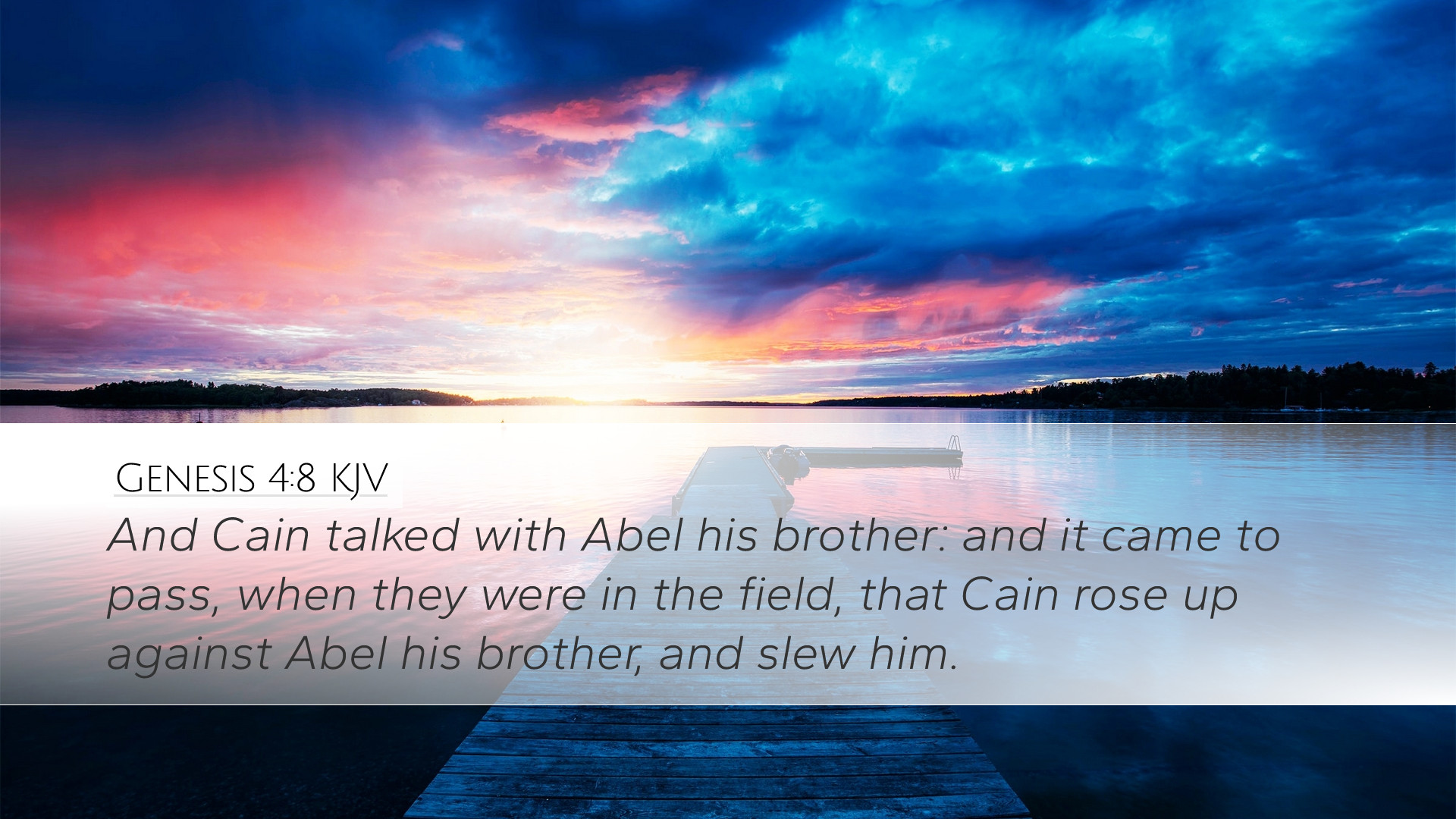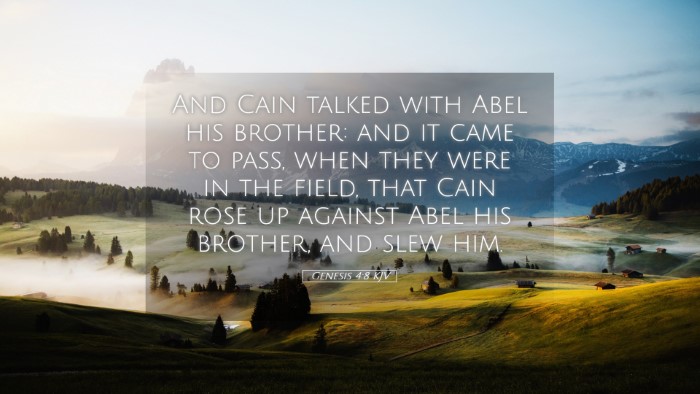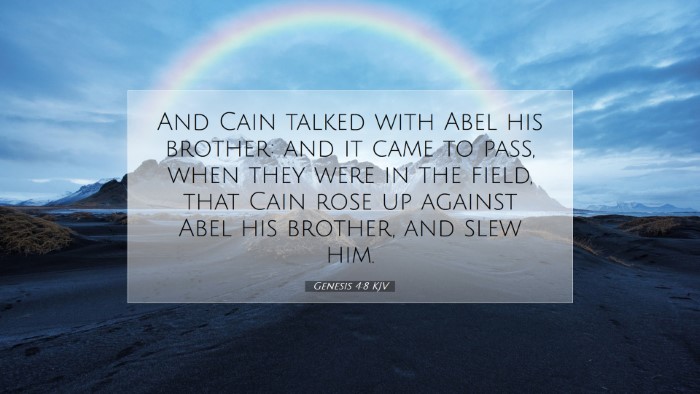Genesis 4:8 states: “And Cain talked with Abel his brother: and it came to pass, when they were in the field, that Cain rose up against Abel his brother, and slew him.”
Introduction
The passage of Genesis 4:8 is a pivotal moment in the biblical narrative as it marks the first instance of fratricide, a tragic decline in human relationships following the Fall. This commentary seeks to explore the themes, motives, and theological implications of Cain's actions through insights gleaned from historical public domain commentaries, notably those of Matthew Henry, Albert Barnes, and Adam Clarke.
Contextual Background
The backdrop of Genesis 4 is essential to understanding this verse. After the expulsion from Eden, Adam and Eve have two sons, Cain and Abel. The offerings presented by these brothers become a focal point of God’s favor and human jealousy.
- Cain's Offering: Cain, a farmer, brings fruits of the ground, yet it is not received favorably.
- Abel's Offering: Abel, a shepherd, offers from his flock, receiving God's commendation.
As Matthew Henry notes, “the favor of God towards Abel and his offering was a source of envy to Cain,” suggesting that Cain’s anger is rooted in a deeper spiritual struggle.
Dialogue and Deceit
The text indicates that Cain “talked with Abel,” highlighting a significant interaction. Adam Clarke suggests that this conversation was likely a façade, cloaked in the guise of reconciliation, yet it masks Cain's malignant intent. This revelation speaks to the nature of sin, which often leads individuals to engage in deceitful communication.
During this conversation, Cain’s internal turmoil is evident. Albert Barnes emphasizes that God’s rejection of Cain's offering instigated his wrath and led to the fateful decision to approach Abel under the pretense of goodwill.
The Act of Violence
“Cain rose up against Abel” represents not merely a physical act but the culmination of unresolved jealousy and rage. This moment embodies the warning given to Cain earlier in Genesis 4:7: “...sin lieth at the door.” Henry elaborates that Cain’s actions were direct disobedience to God's will, leading to irreversible consequences.
Symbolic Interpretation
Cain’s act is significant both literally and symbolically. The ranged dynamic between the two brothers serves as a microcosm of humanity’s broader spiritual struggles. Cain, who represents the flesh and human effort, acts in response to anger, while Abel, representing faith and righteousness, becomes a martyr.
The Theological Implications
This verse lays the groundwork for understanding sin’s destructive path. As Adam Clarke points out, the murder of Abel symbolizes the rejection of divine favor and the escalation of evil. The moral decline represented by Cain's actions points towards an inevitable moral decay inherent in humanity following the Fall.
Lessons for Believers
This passage serves as a cautionary tale for believers. The underlying message warns against the dangers of jealousy and anger. Each scholar highlights the significance of self-control and vigilance against sin. Barnes notes that the condition of Cain’s heart, not merely his actions, acted as the catalyst for his decision to murder his brother.
- Moral Responsibility: Christians must recognize their moral obligations and the importance of fostering healthy relationships.
- Importance of Dialogue: Genuine communication reflects transparency and integrity, contrary to Cain's deceit.
- Sin's Escalation: Understanding the trajectory of sin can aid believers in combating temptation at early stages.
Conclusion
Genesis 4:8 not only recounts a historical incident but also serves as an enduring reminder of the potential consequences of sin. By examining the psychological, social, and spiritual dynamics at play in this narrative, pastors, students, theologians, and scholars can glean profound insights applicable to contemporary faith and morality.
As we reflect on Cain’s tragic story, we are reminded of the need for reconciliation, the dangers of unchecked emotions, and the perpetual struggle between good and evil within us.


